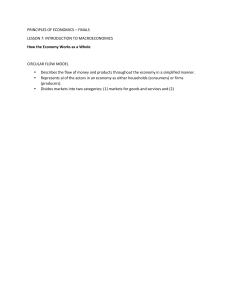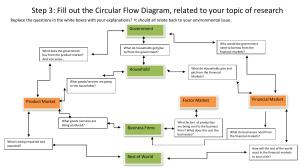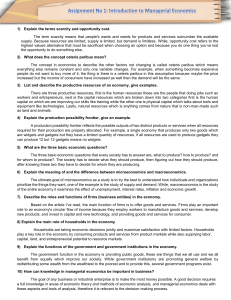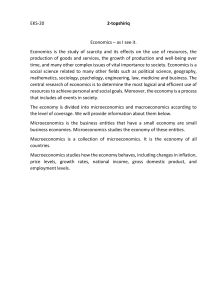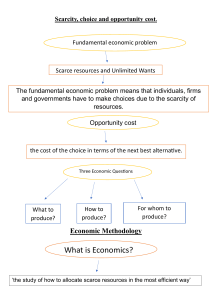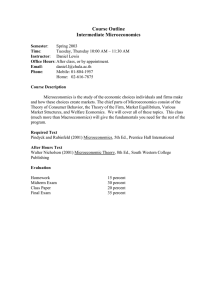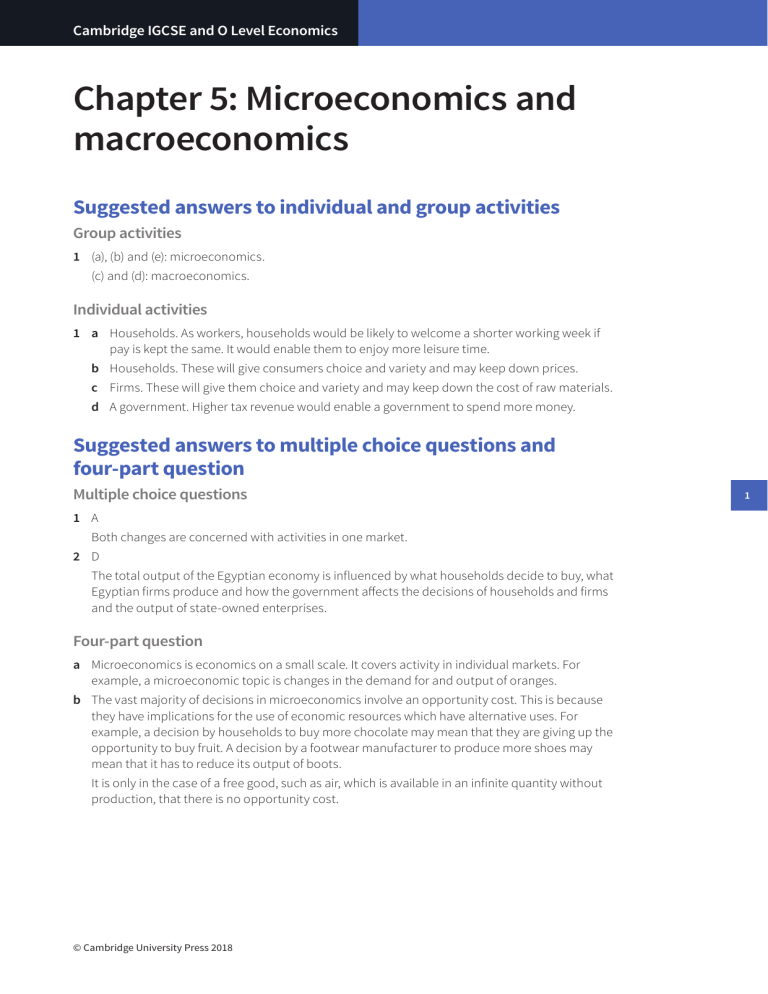
Cambridge IGCSE and O Level Economics Chapter 5: Microeconomics and macroeconomics Suggested answers to individual and group activities Group activities 1 (a), (b) and (e): microeconomics. (c) and (d): macroeconomics. Individual activities 1 a H ouseholds. As workers, households would be likely to welcome a shorter working week if pay is kept the same. It would enable them to enjoy more leisure time. b Households. These will give consumers choice and variety and may keep down prices. c Firms. These will give them choice and variety and may keep down the cost of raw materials. d A government. Higher tax revenue would enable a government to spend more money. Suggested answers to multiple choice questions and four-part question Multiple choice questions 1 A Both changes are concerned with activities in one market. 2 D The total output of the Egyptian economy is influenced by what households decide to buy, what Egyptian firms produce and how the government affects the decisions of households and firms and the output of state-owned enterprises. Four-part question a Microeconomics is economics on a small scale. It covers activity in individual markets. For example, a microeconomic topic is changes in the demand for and output of oranges. b The vast majority of decisions in microeconomics involve an opportunity cost. This is because they have implications for the use of economic resources which have alternative uses. For example, a decision by households to buy more chocolate may mean that they are giving up the opportunity to buy fruit. A decision by a footwear manufacturer to produce more shoes may mean that it has to reduce its output of boots. It is only in the case of a free good, such as air, which is available in an infinite quantity without production, that there is no opportunity cost. © Cambridge University Press 2018 1
